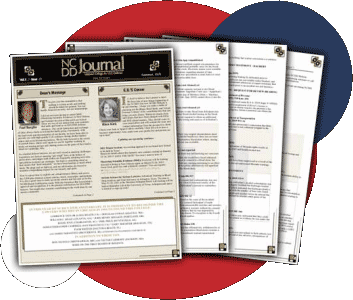- The ABA’s Concise Guide to Lawyer Specialty Certification
- Benefits to Become Board Certified - ABA Video
- Board Certified Members
- How to Become Board Certified in DUI Defense Law
- Apply for Certification
- Apply for Re-Certification Renewal
- Board Certified Senior Specialist
- Rules Governing Board Certification
- Preparing for the Exam
Now Silence May Be Used Against You, So Know What To Say
Posted on May 21, 2018 in Uncategorized

Now Silence May Be Used Against You, So Know What To Say
The Fifth Amendment to the United States Constitution states, "No person shall be compelled in any criminal case to be a witness against himself " Not only does the right apply at trial, but it also applies during custodial interrogation. Thus, once a suspect is under arrest he has the right to remain silent and not incriminate himself.
While acknowledging the existence of this right, the California Supreme Court recently held in a 4-3 opinion that the right is not self-executing—unless the police have advised him of his right to remain silent (i.e., Mirandized him), he must unambiguously declare he is invoking his Fifth Amendment right to remain silent or his silence may be used against him to show a consciousness of guilt! People v. Tom, Calif. Supreme Court – Docket No. S202107) (August 14, 2014). Yes, the accused must talk in California in order to be protected by the Fifth Amendment right to remain silent.
Sound crazy? Justice Liu wrote a dissenting opinion saying as much, and Justices Rylaarsdam and Werdegar agreed with him. As Lui points out, "the Miranda warnings are not themselves the source of the rights stated in the warnings. The warnings are a means of giving effect to the rights that are already operative when the police initiate custodial interrogation."
The California Supreme Court's shredding of the Fifth Amendment right to remain silent in People v. Tom got its footing with Salinas v. Texas, 570 U.S. ___, 133 S.Ct. 2174 (2013), a United States Supreme Court plurality opinion last year authored by Justice Alito. In what Justice Werdegar aptly characterizes in her Tom dissent as "a hopelessly fractured decision," the high Court permitted the introduction into evidence of a non-custodial defendant's silence to a particular question during an interrogation. Yet because Salinas did not go so far as to say that custodial silence without interrogation may be used against a defendant, the Tom majority also relied upon a lower federal court case where there was no objection to the evidence, as well as an unpublished decision from an intermediate appellate court in Texas. California lawyers are not even permitted to cite unpublished decisions in support of their arguments, and the Texas Rules of Court also specify that its unpublished opinions have no precedential value.
There was a time when the California Supreme Court was on the cutting edge of protecting individual rights and liberties. Yet after the recall and ouster of Justices Rose Bird, Cruz Reynoso, and Joseph Grodin in 1986, the Court took a hard turn to the right and became radically indifferent to the rights of the accused. Time and again the Court has used razor-thin distinctions to evade binding precedent from the United States Supreme Court. In People v. Thompson, 38 Cal.4th 811 (2006), it approved the warrantless entry into a home to arrest a DUI suspect on the basis that the offense is a misdemeanor in California instead of an infraction, thereby skirting the holding in Welsh v. Wisconsin, 466 U.S. 740 (1984) which prohibits such entry. In Brendlin v. California, 551 U.S. 249, the United States Supreme Court unanimously reversed a 7-0 decision by the California Supreme Court that had erroneously held passengers in a car lack legal standing to contest an unconstitutional stop of the vehicle.
The damaging aspect of the Tom holding is not so much the loss for Richard Tom—he's a hard guy to like (he killed an 8-year-old girl and seriously injured her 10-year-old sister in the presence of their mother in an extremely reckless car accident, and then apparently lacked any concern for the several hours following it). No, the real damage from this decision is how it will be used and abused by police and prosecutors to help convict defendants in future cases.
Here is an example of how this can play out: Defendant is arrested on suspicion of driving under the influence. On the way to jail he says nothing. He is not Mirandized until he gets to the jail, if at all (police often don't Mirandize DUI suspects because they do all of their questioning on the side of the road when the accused is supposedly not in a coercive environment). Now the prosecutor may comment in trial, "Why didn't the Defendant say, `the roadside breath test results must be wrong, I only had one beer!?' Instead, he didn't say a word because he knew he was guilty. He knew he had more than one beer."
Here is another example: Same situation and the prosecutor comments, "Why didn't he say he wasn't driving the car? If he wasn't the driver, he would have said so."
To shield yourself from the outrageous Tom decision, the next time you are investigated or detained by the police respectfully say, "I invoke my Fourth, Fifth, and Sixth Amendment rights." Then say nothing.
Find an Attorney
Enter your city, state, or Zip code below to locate a qualified attorney who has demonstrated a commitment to defend those accused of DUI and related crimes.








